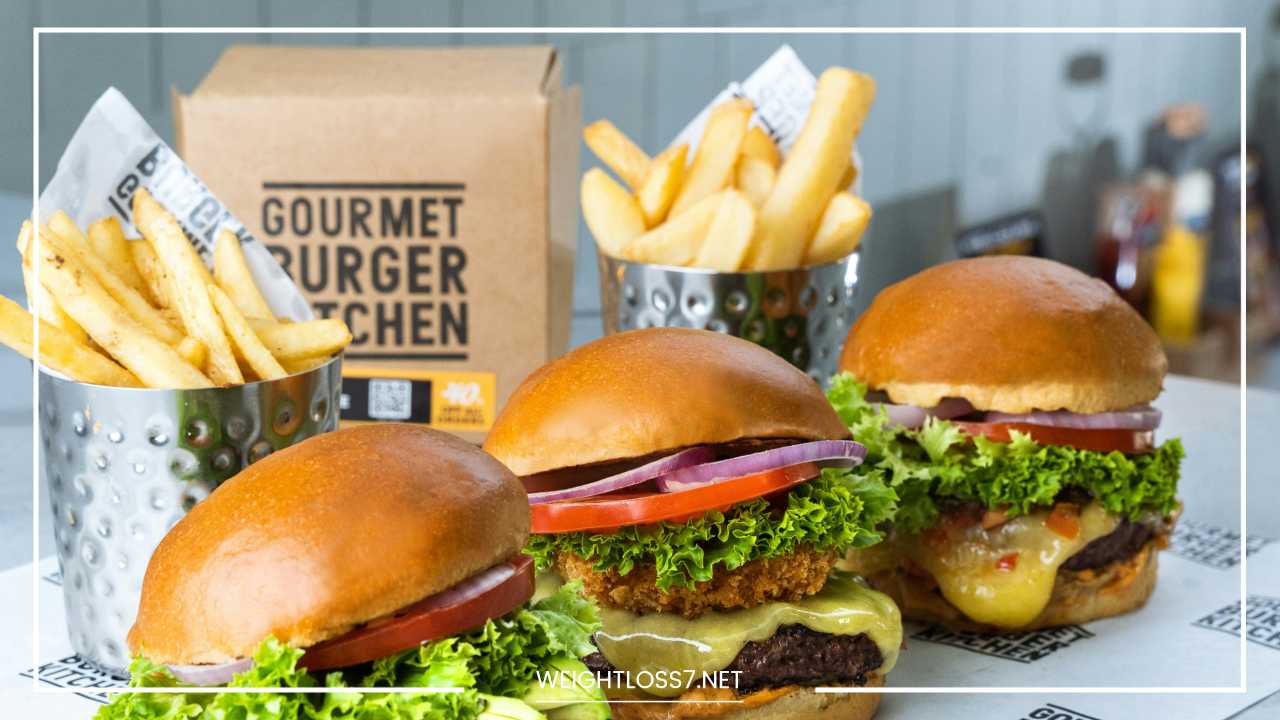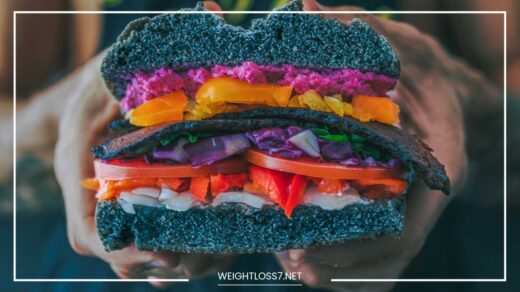Overweight: Causes, Impacts & Strategies for Well-being

Overweight
Overweight: Unpacking the Issue, Embracing Wellness
Being overweight is a prevalent experience, impacting millions globally. It’s a term often used interchangeably with “obesity,” but the reality is more nuanced.
Underneath the clinical definition lies a complex web of factors, emotions, and a yearning for a healthier, more vibrant you.
This post delves deeper than the number on the scale, exploring the reasons behind weight gain, the multifaceted impact it has on our lives, and most importantly, navigating a path towards a sustainable and empowering relationship with food, movement, and your body.
Understanding the “Why” Behind Weight Gain
Weight gain rarely happens overnight. Often, a silent symphony plays out, a combination of internal and external factors taking center stage:
- Genetics: They play a crucial role in metabolism, body composition, and even our hunger cues. While not a destiny, genetics can influence our susceptibility to weight gain. Imagine you inheriting a slightly less efficient engine in your car. You might need to be more mindful of fuel consumption (calorie intake) to maintain an optimal weight.
- Diet: The modern food landscape is a minefield. Processed foods, sugary drinks, and supersized portions often lure us in with convenience and taste, but lack the filling power of whole foods. These foods are like empty calories; they provide energy but little essential nutrition. Think of them as fueling your car with sugary water instead of a balanced blend of nutrients.
- Physical Activity: Our increasingly sedentary lifestyles often don’t burn enough calories to match what we consume. Think of our bodies as cars designed to move, but stuck in rush hour traffic most of the day. Exercise becomes the act of taking scenic detours, burning excess calories and keeping the engine running smoothly.
- Stress: This modern-day monster wreaks havoc on our hormones. Stress hormones like cortisol can increase appetite and cravings for sugary, fatty foods. Imagine stress as a detour forcing you to stop at a fast-food joint instead of reaching your healthy meal destination.
- Sleep: Lack of sleep disrupts hormones that regulate hunger and satiety. When sleep-deprived, our bodies signal increased hunger even when we’ve had enough calories. Imagine sleep as the mechanic who tunes your car’s engine (hormones). Without proper rest, the engine runs inefficiently, leading to increased fuel consumption (hunger).
- Medications: Certain medications can have weight gain as a side effect. This is a conversation to have with your doctor to explore alternative options or manage weight alongside medication use.
The Impact of Being Overweight: A Spectrum, Not a Binary
While there are undeniable health risks associated with being overweight or obese, it’s important to move beyond the stigma often attached to these terms.
Being overweight exists on a spectrum, and the health impact varies greatly depending on individual factors like body composition, activity levels, and overall health.
Here’s a breakdown of the health considerations:
Increased Risk for:
- Heart Disease: Excess weight strains the heart and increases bad cholesterol levels, hindering its smooth operation.
- Type 2 Diabetes: Insulin resistance can develop, leading to high blood sugar levels and potential long-term complications.
- Certain Cancers: Breast, colon, and pancreatic cancers have a higher risk with obesity. However, other lifestyle factors also play a significant role.
- Sleep Apnea: Excess weight can obstruct airways during sleep, leading to breathing difficulties and poor sleep quality.
- Joint Pain: Carrying extra weight puts stress on joints, causing pain and discomfort.
- Mental Health: Depression, anxiety, and low self-esteem can be both causes and consequences of being overweight. The negative body image and societal pressures can take a toll on mental well-being.
However, it’s crucial to remember:
- Health is Multifaceted: Focusing solely on a number on the scale doesn’t paint the whole picture. Someone classified as overweight might have excellent cardiovascular health due to regular exercise.
- Focus on Progress, Not Perfection: Striving for gradual, sustainable improvements in diet, activity, and overall well-being is far more valuable than aiming for an unrealistic and potentially unhealthy weight loss goal.
- Body Positivity Matters: Accepting and appreciating your body, regardless of size or shape, is essential for mental well-being.
Shifting the Focus: Your Journey Towards Wellness
Instead of the singular goal of weight loss, consider a holistic approach to achieving overall wellness. Think of it as a symphony with various instruments playing their part to create a harmonious melody:
- Mindful Eating: Become an active participant in your eating experience. Pay attention to hunger and fullness cues. Eat slowly, savor your food, and avoid distractions like screens while eating. This allows you to appreciate the taste and texture of your food, promoting satiety and preventing overeating. Imagine each bite being a mindful connection with your body’s needs.
- Nourishing Your Body: Prioritize whole, unprocessed foods like fruits, vegetables, whole grains, and lean protein sources. These foods are packed with essential nutrients that keep your body functioning optimally, providing sustained energy and promoting feelings of fullness. Think of them as premium fuel for your high-performance car (your body).
- Moving Every Day: Find activities you enjoy, like walking, swimming, dancing, or even gardening. Aim for at least 30 minutes of moderate-intensity exercise most days of the week. Consistency is key. Even small bursts of movement throughout the day add up. Find ways to integrate movement into your routine, like taking the stairs or parking further away from your destination. Imagine exercise as different routes on a scenic journey, keeping your car (body) running smoothly and exploring new landscapes.
- Managing Stress: Stress plays a villainous role in weight management. Explore stress management techniques like yoga, meditation, deep breathing exercises, spending time in nature, or pursuing hobbies you enjoy. Find healthy outlets to release pent-up tension and calm your mind. Imagine these techniques as tools in your mechanic’s toolbox, fine-tuning your engine (body) to run more efficiently.
- Prioritizing Sleep: Aim for 7-8 hours of quality sleep each night. When sleep-deprived, our bodies produce more ghrelin (the hunger hormone) and less leptin (the satiety hormone), priming us for overeating. Adequate sleep allows your body to repair and recharge, regulating hormones and keeping your engine (body) running smoothly.
- Developing a Support System: Having friends, family, or a therapist to talk to can provide encouragement, accountability, and a safe space to share your struggles. Surround yourself with positive influences who support your wellness journey. Imagine your support system as your cheerleaders, keeping you motivated and celebrating your victories.
Finding the Right Information and Resources: Knowledge is Power
Navigating the world of weight management can be overwhelming. Here are some tips to find reliable information and resources:
- Seek professional guidance: Talk to your doctor or a registered dietitian for personalized advice. They can help you develop a safe and effective plan based on your individual needs and health conditions.
- Utilize reputable websites: Government health agencies (like the Centers for Disease Control and Prevention (CDC) in the US) and credible health organizations (like the American Heart Association) provide accurate and evidence-based information on weight management, healthy eating, and physical activity.
- Be wary of quick fixes: Diet fads and weight-loss supplements often promise unrealistic results and can be unhealthy, even dangerous. Focus on sustainable lifestyle changes rather than a magic bullet solution.
Beyond Weight Loss: Cultivating Body Positivity
Building body positivity is about accepting and appreciating your body, regardless of size or shape. It means challenging the often unrealistic beauty standards portrayed in media and celebrating your body for all that it allows you to do. Here are some ways to cultivate body positivity:
- Challenge negative media messages: Unfollow accounts that promote unrealistic beauty standards and focus on diverse bodies. Surround yourself with media that celebrates inclusivity and body positivity.
- Practice self-compassion: Treat yourself with kindness and understanding, just as you would with a friend. Focus on your strengths and what you love about your body.
- Focus on how your body feels: Celebrate your strength, energy, and resilience. What can your body do? How does it move you through the world?
- Wear clothes that make you feel good: Don’t let clothing sizes dictate your self-worth. Find clothes that flatter your body and make you feel confident.
Remember: You are worthy of love and respect at any size. Your body is a powerful tool that allows you to experience the world.
This Journey is Yours: Embrace the Process
Changing your relationship with food, exercise, and your body is a personal journey, not a race. There will be bumps along the road, moments of frustration, and days when reaching for that extra slice of cake seems easier than going for a walk. That’s okay.
Here are some tips to embrace the process:
- Celebrate small victories: Acknowledge your progress, no matter how small. Every healthy meal choice, every workout session, is a step in the right direction.
- Focus on progress, not perfection: There will be setbacks. Don’t let them derail you. Get back on track and keep moving forward. Remember, consistency is key.
- Find joy in movement: Exercise shouldn’t feel like punishment. Explore different activities until you find something you enjoy. Maybe it’s dancing to your favorite music, going for a hike with a friend, or joining a fitness class. When movement is enjoyable, you’re more likely to stick with it.
- Be kind to yourself: Self-compassion is crucial. Forgive yourself for occasional indulgences and setbacks. Treat yourself with the same kindness and encouragement you would offer a friend on their own wellness journey.
Remember, you are not alone. Millions of people are on a similar path towards a healthier and happier relationship with themselves. There are many resources available to support you, including:
- Online communities: Connect with others who share your goals and challenges. Online forums and social media groups can provide a space for encouragement, motivation, and shared experiences.
- Support groups: In-person support groups can offer a safe space to connect with others who understand your struggles. They can provide valuable insights, camaraderie, and a sense of belonging.
- Mental health professionals: Therapists can help you address any underlying emotional issues that may be contributing to your weight management struggles. They can also provide tools for managing stress, building self-esteem, and developing a healthy body image.
The takeaway? Being overweight is a complex issue with a multitude of contributing factors. Focusing solely on weight loss can be restrictive and unsustainable.
Instead, embrace a holistic approach to wellness, prioritizing nourishing your body, moving your body in ways you enjoy, managing stress, and cultivating body positivity.
This journey is about creating a sustainable and healthy relationship with yourself, for a lifetime of well-being.

















